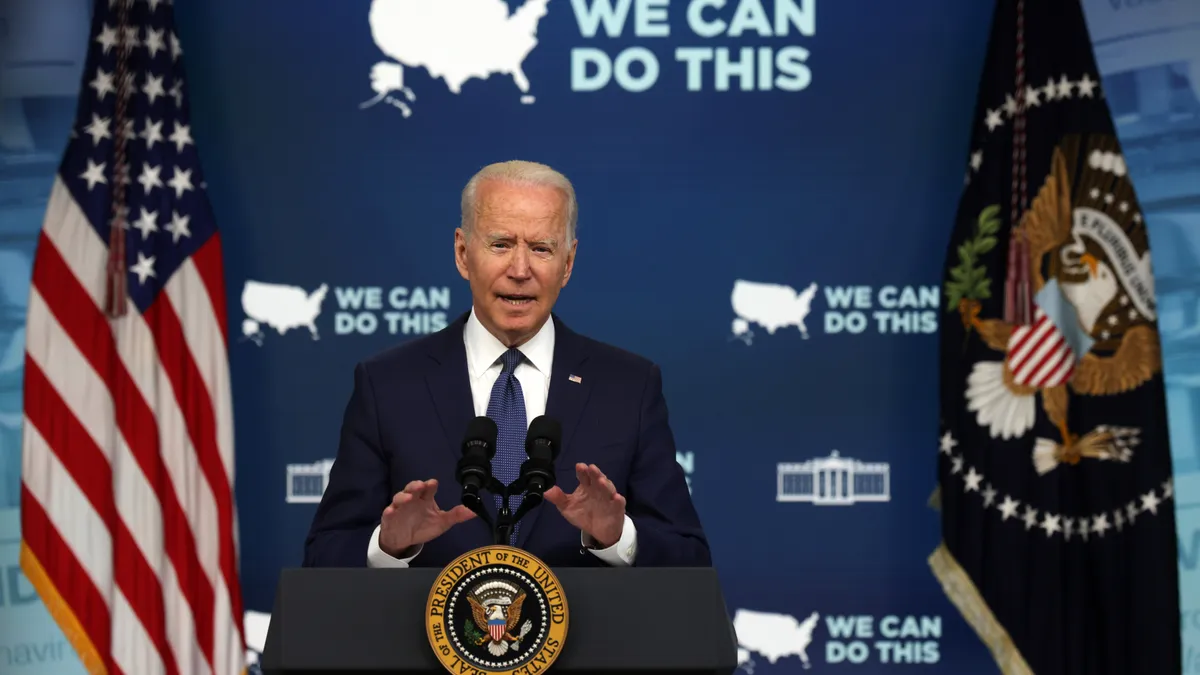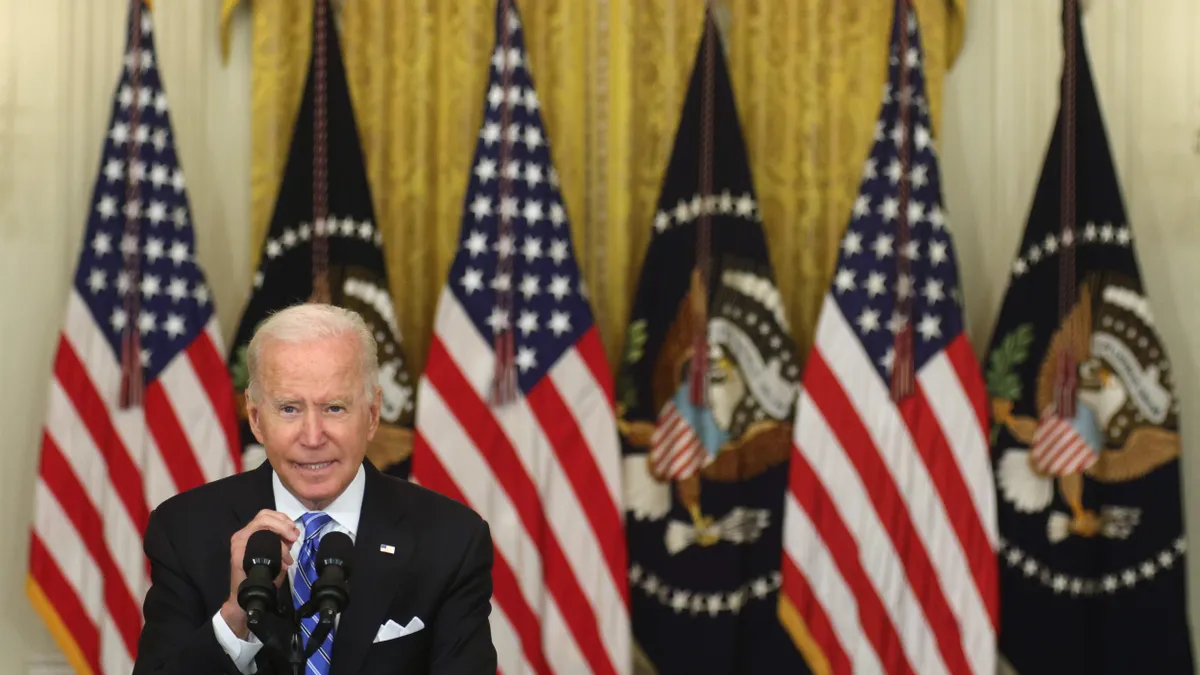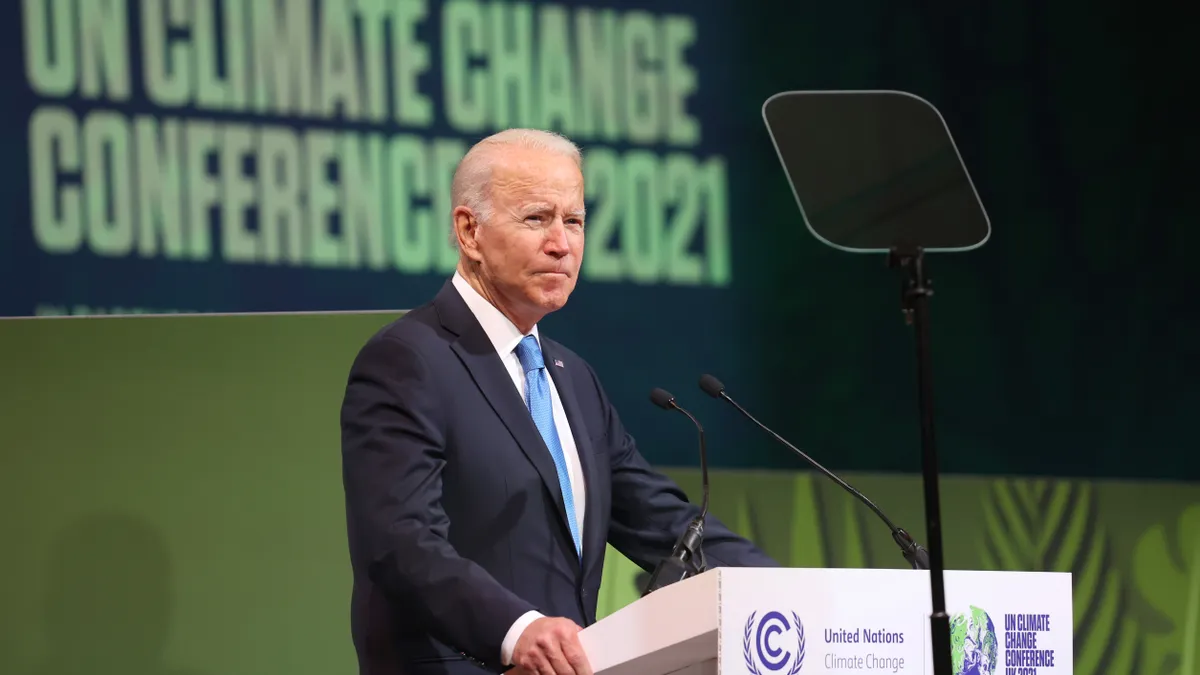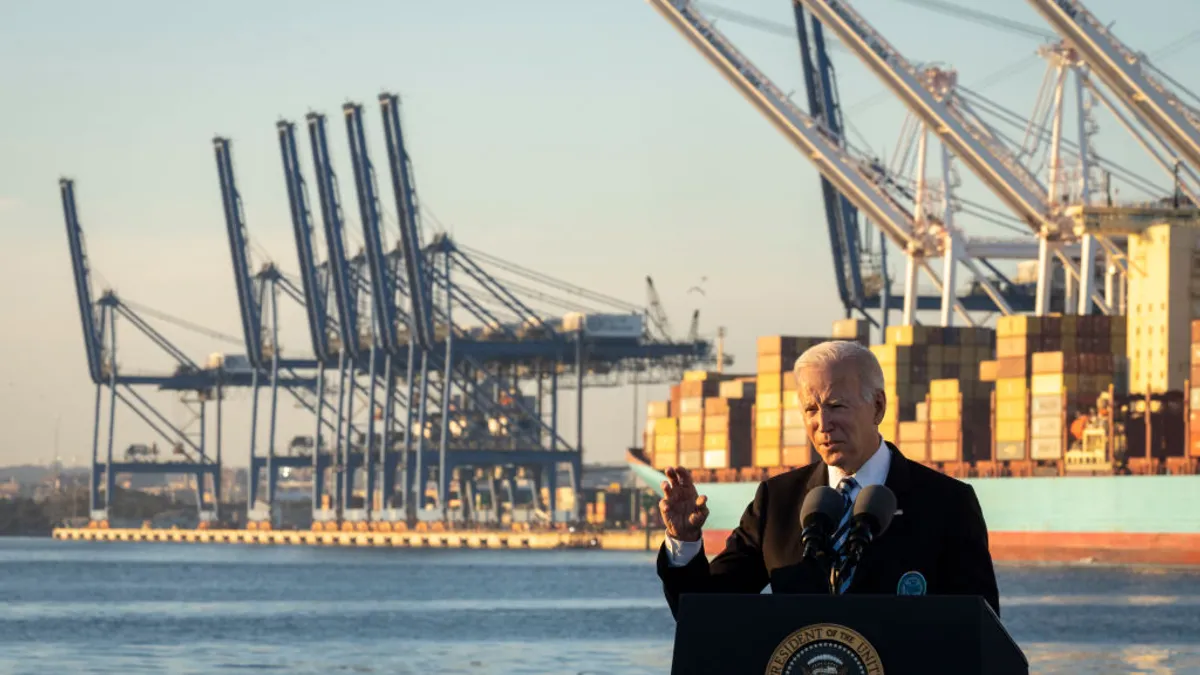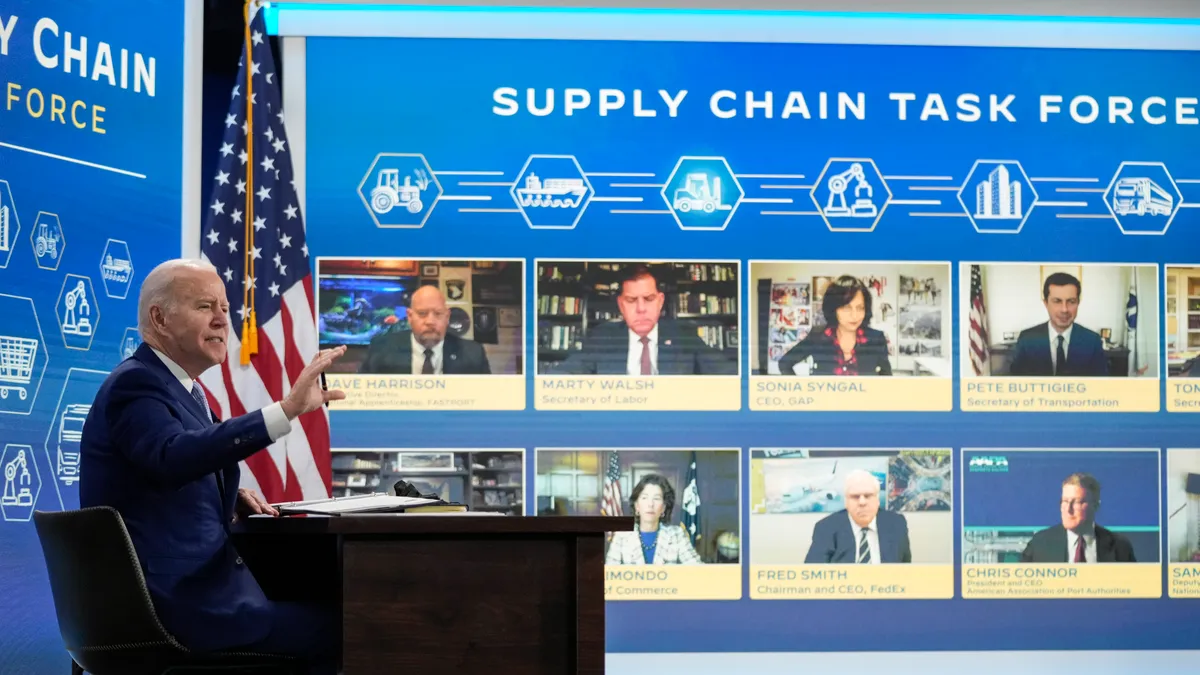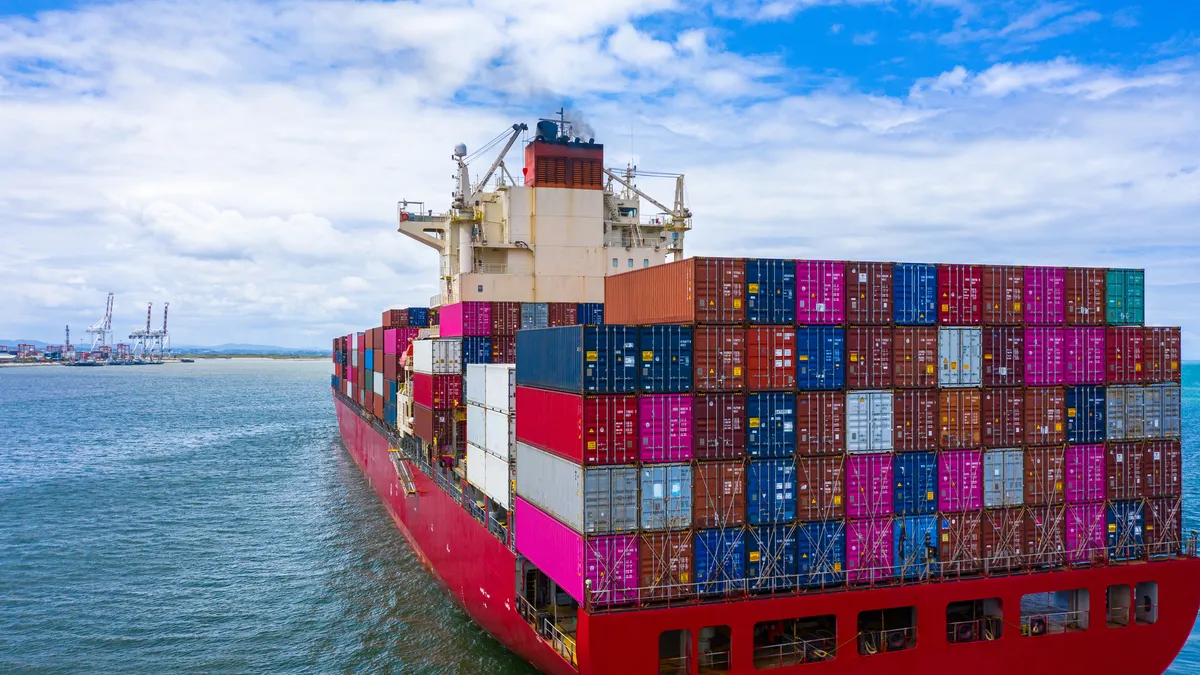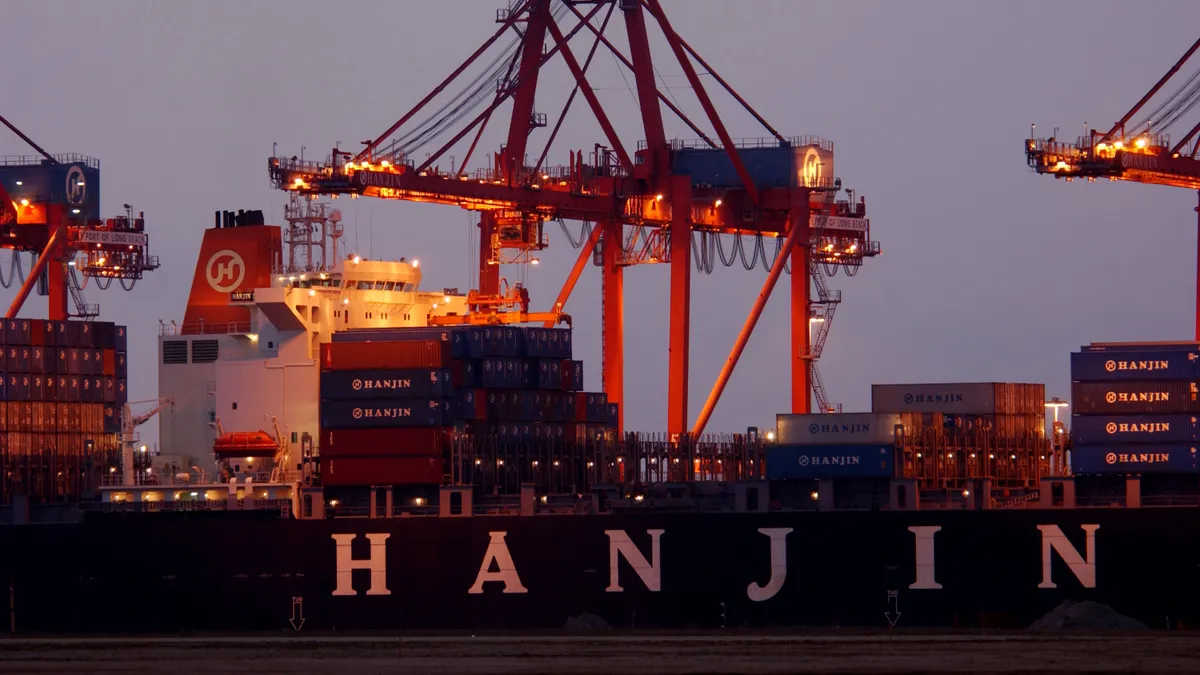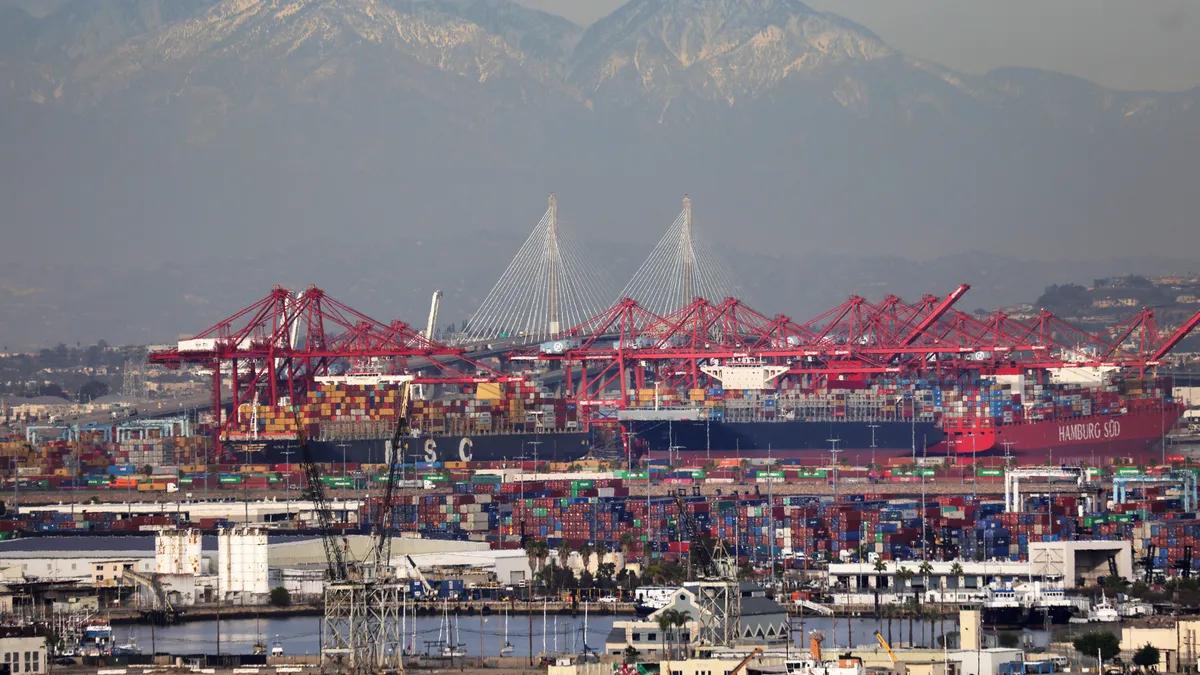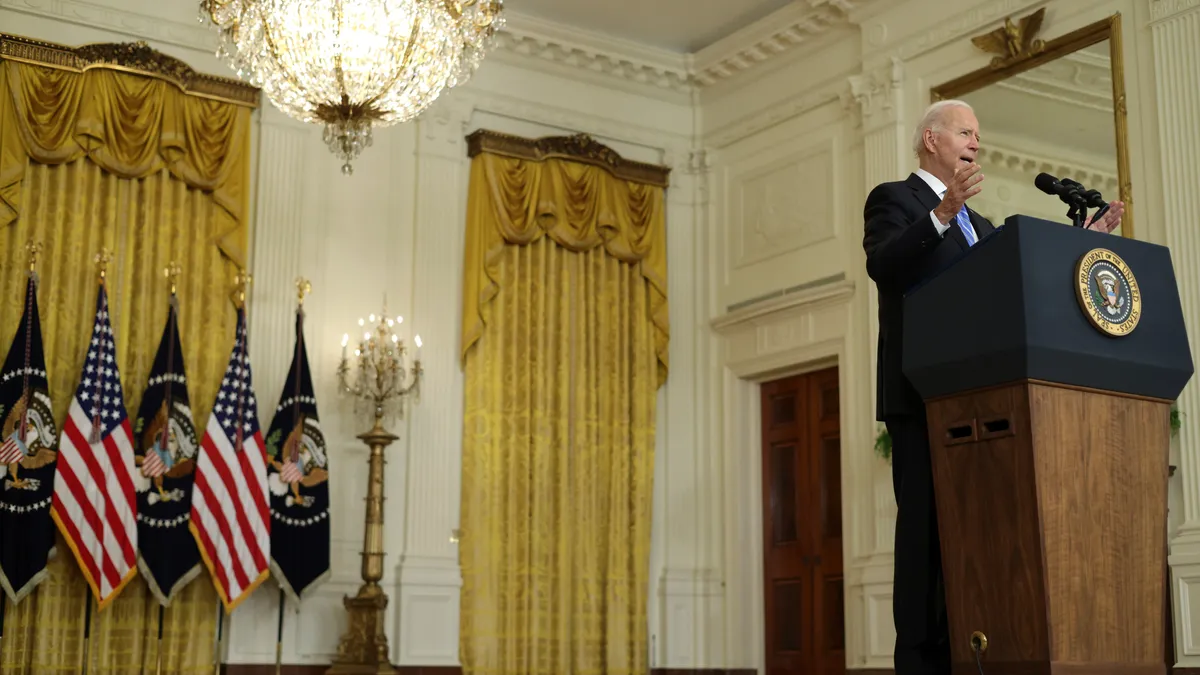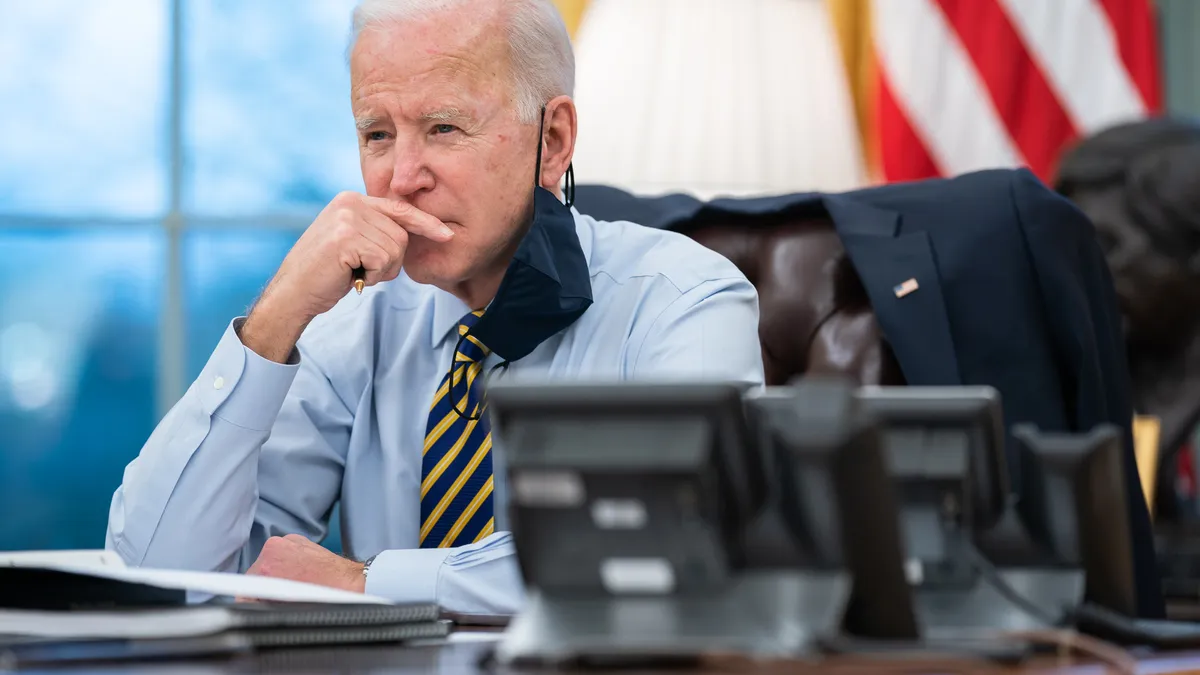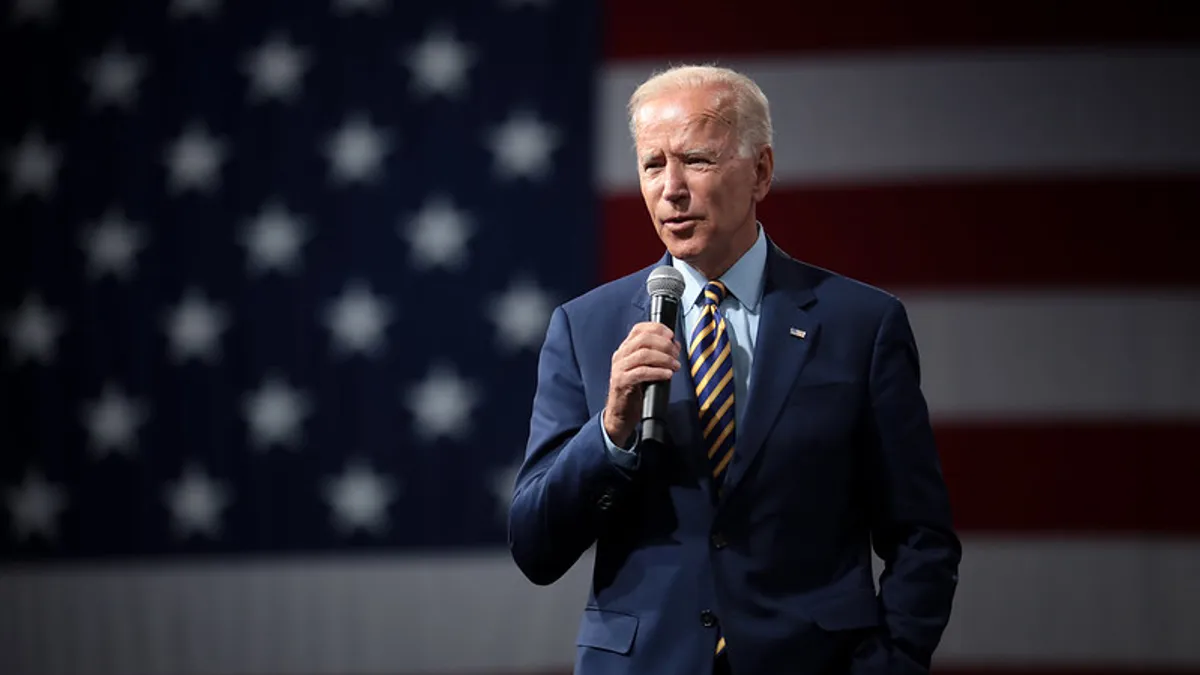UPDATE: July 13, 2021: The FMC and DOJ Antitrust Division signed a Memorandum of Understanding Monday as the two agencies begin to work more closely on oversight and enforcement in the ocean freight market, according to an announcement from the FMC.
"This memorandum between the Commission and the Department of Justice supplements and strengthens the FMC’s ability to detect, address, and pursue violations of the law or anticompetitive behavior by those we regulate," FMC Chairman Daniel B. Maffei said in a Monday statement.
President Joe Biden will sign an executive order Friday that takes aim at corporate consolidation with the goal of increasing competition among businesses, according to a release from the White House.
The wide-ranging order includes 72 initiatives and enlists more than a dozen agencies to fulfill its goals. It specifically calls on the Surface Transportation Board and Federal Maritime Commission to use their regulatory power to encourage changes within the heavily consolidated carrier market.
When it comes to rail, the executive order points out railroads tend to own their tracks and prioritize their own freight. The order calls on the STB to require track owners to provide rights of way to passenger trains and strengthen requirements for fair treatment of freight companies.
Separately, it orders the FMC to ensure that U.S. exporters aren't being charged "exorbitant" fees by carriers. Press Secretary Jen Psaki said Thursday it would have the FMC work alongside the Justice Department "to crack down on unjust and unreasonable fees" and anticompetitive behavior by carriers.
The effort by the Biden administration to tamp down on the power of heavily consolidated transportation industries comes at a time when the international supply chain has been heavily strained by increased demand and myriad disruptions. In talking about the order, Psaki said that carriers have often used the power of their consolidation to force higher prices on shippers.
"On domestic freight railroad, the executive order urges the Surface Transportation Board to ... allow shippers to more easily challenge inflated rates when there is no competition between routes," Psaki said.
The order specifically calls out the practice of detention and demurrage. These fees charged by ocean carriers have levied controversy for years, leading to the FMC releasing guidance for the industry last year. But the supply chain has become increasingly congested over the last 16 months, leading to increased dwell time in ports, which exacerbates the issue of detention and demurrage fees for shippers, experts have said.
And while increased dwell time means that the fees are becoming more common, a recent report from Container xChange found they're also getting more expensive.
The FMC is already investigating reports that carriers aren't following the guidance issued last year.
"In recent months, we have increased our scrutiny of the ocean carrier alliances to identify evidence of anticompetitive behavior regarding rates and capacity, and we will continue to do so as the COVID-19 and import surge crisis continues. We welcome the assistance and cooperation from other agencies, including the Department of Justice," FMC Chairman Daniel B. Maffei said in an emailed statement Friday.
On detention and demurrage, Maffei said, "it remains a top priority of the agency to identify and take action against those who flout the Commission’s recent interpretive rule on reasonable regulations and practices."
Gerald A. Morrissey, a partner at Holland & Knight, said the order likely won't provide any new powers to the FMC or STB, but have the agencies work with the regulatory frameworks they already operate under. Morrissey pointed out that the agencies are given their powers by Congress.
He noted that the order outlines support for the STB and FMC "to do all that they can."
"And I would expect that that means, you know, all that they can under existing authority," Morrissey said.
Psaki pointed out that the ocean shipping industry has become increasingly consolidated within three major alliances. While not named in the order the alliances are 2M, THE Alliance, and Ocean Alliance. And none of the carriers that operate in them are U.S. companies. But Morrissey said the U.S. government is still able to regulate their business under the Shipping Act. This act requires carriers to act with reasonable practices and prevented them from boycotting, he said.
"So there are a number of protections," he said. "It does apply to them, despite that they may be located or headquartered in other countries."
One aspect of the trade that the U.S. can't regulate is rates. The government once had this power, but deregulation of the industry changed that, Morrissey said.
Carriers respond:
- Hapag-Lloyd Spokesperson: The "current situation is caused by tremendous demand from US customers and infrastructure shortages on the land side (Terminals, Depots, Trucking). All carriers are doing their utmost to cope with this and all carriers fulfill the needs of their customers. If regulations are intended they should target to get the infrastructure issues eased."
- Doug Morgante, Vice President, US Government Relations, Maersk: Morgante underscored that the congestion experienced during the pandemic has been due to a number of factors outside the control of any one stakeholder. "To find lasting solutions, all stakeholders in the market need to accept that managing global supply chains is inherently a complex and collaborative effort. Only through true partnerships – including regulators and policy makers – will we be able to make progress toward a less volatile and a more efficient port ecosystem. Maersk will continue the good and collaborative working relationships we have with the FMC and the United States Congress on these highly complex matters."
- Union Pacific: "Union Pacific competes vigorously across all modes of transportation to provide customers with safe, reliable and efficient rail transportation services. We invest billions of dollars in rail infrastructure every year to remain competitive, while reducing greenhouse gas emissions up to 75% compared to trucks. Since Congress passed the Staggers Act, inflation-adjusted freight rates are 44% lower than they were in 1981. Proposals to impose new regulations on the freight rail industry risk taking America backward and impair economic growth."
- John Butler, President and CEO of World Shipping Council: "We agree with the White House that the FMC has the tools to investigate and is the appropriate authority to take action on any issues when it comes to detention and demurrage. Shippers can report any irregularities so that they are properly investigated, and action taken against any improper practices."
The focus on increasing consolidation within the transportation industry comes as two of the seven Class I railroads in the U.S. seek approval to merge their networks. Kansas City Southern and Canadian National have entered into an agreement that would create the first railroad that reaches from Canada into Mexico. The deal still needs to be approved by the STB, the same agency the Biden administration has now tasked with fighting the effects of consolidation in the industry.
A spokesperson for the STB said the agency's Chairman "will consider the EO today and release a statement on Monday."
Some industry stakeholders, such as the Agriculture Transportation Coalition, have been calling for more government intervention in the current supply chain issues to help ensure capacity for U.S. companies. But others are skeptical that government regulation can help with the issues facing supply chains.
"With 90% of the ocean trade relying on the top-10 carriers and the major alliances, having more oversight and involvement from the government will not bring immediate relief," Glenn Koepke, SVP of customer success at FourKites, said in an emailed statement. He went on to add that "on the surface, while this seems like a potential relief valve, shippers will continue to see a volatile market for as long as demand remains high globally."
Morrissey also suggested that a more holistic review of the supply chain issues could better serve the industry rather than just focusing on carriers.
"Looking only at one player is not as likely to achieve meaningful and informed change," he said.



